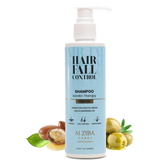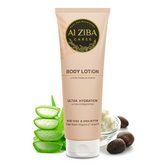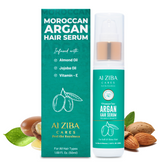7 tips for choosing the right shampoo for your Hair
choosing the right shampoo for your Hair can be difficult. There is no doubt that you are spoilt for choice when you reach the shampoo aisle while shopping. Even with all these options, it’s normal to feel confused and overwhelmed by the sheer variety available.
7 tips for choosing the right shampoo for your Hair
We’ve broken down the most common hair concerns and listed some tips for choosing the right shampoo for you. Let’s get started.
1. Consider your hair and your scalp
Most people think of shampoos as cleansing agents for their hair. And while that is broadly true, shampoos play a major role to help you in maintaining a healthy scalp. For instance, if you have an oily scalp, you should go for a shampoo that has a higher sulfate concentration. Sulfates help to deep clean the oil from your scalp and get rid of impurities. The best idea is to just read the label on the shampoo bottle before buying.
2. Sometimes a splurge is worth it
Good things often come at a price. You should go for a shampoo with minimal ingredients. It’s not necessary that you buy organic, but go for a “clean” shampoo. Organic shampoos are made from natural ingredients and are often high-quality.
Most commercial and cheap shampoos have a higher proportion of soaps and filler sulfates, which fill the bottle but don’t do much for your hair. For an expensive shampoo, you could also alternate between using it only for a few days a week. Don’t be afraid to splurge on the occasional pricy bottle of shampoo or conditioner, particularly when dealing with treatments for a specific hair type.
3. Don’t be afraid of dry shampoo
A lot of us are afraid to buy shampoos which have sulfates. Sulfates are useful if you have an oily scalp and want to deep clean your hair. Without sulfates, you would have to vigorously massage your hair, and you may still lack that feeling of a “deep cleaned scalp”. However, if you have dry, frizzy, or curly hair, then it’s the best option for you to avoid sulfates compositions in shampoos, as they may strip your scalp of much-needed moisture.
4. If you have oily hair
Choosing the right shampoo for oily or greasy hair can be a tough job. When the bottle mentions oily hair, it’s referring to excess production of oil and sebum on your scalp.
People with oily hair should avoid moisturizing, hydrating shampoos or those that are targeted for people with curly hair. Instead, you should look for terms like ‘Strengthening’, ‘Adding volume’ and and ‘Balancing nourishment’. Oily hair will also require you to massage well into the roots and scalp, for longer than usual to break up the oily concentrate. You should also try a clarifying shampoo.
5. If you have dry hair
If you have dry hair, you should look for the exact opposite traits of a shampoo designed for oily hair. This means that you should say a firm ‘No’ to shampoos designed purely for strengthening or fortifying your scalp. These products might deprive your scalp of necessary conditioning.
For dry, itchy, or flaky hair, you should try going for a moisturizing and hydrating shampoo. Methanol, tee tree oil, and other natural ingredients are often found in shampoos for dry hair. You should also avoid any shampoos that contain sulfates.
6. If you have dandruff
Dandruff is a common concern which you may face, irrespective of your hair type. Dandruff may occur in dry hair when it starts to turn flaky. It may also occur when your scalp produces excess sebum (oil) which is not rinsed off properly. On the other hand, dandruff may also indicate a more serious condition like allergies or infections.
It’s important to narrow down your cause of dandruff before choosing a shampoo. For scalp disorders or infections, you should check with your dermatologist to find the best shampoo. Try choosing shampoos that have salicylic acid, pyrithione zinc, selenium sulfides, etc listed as their active ingredients. There are tons of options available in the market, so couple your anti-dandruff shampoo with your hair type.
You’ll find many hair-fall control shampoos available in the nearby stores. It’s a good idea to check the labels on the bottle to ensure that these shampoos don’t contain any ingredients which might be harmful to your hair.
7. If you have hair fall
Ideally, chemicals to be avoided include Sodium Lauryl Sulfates, Ammonium Lauryl Sulfate, Mureth Sulfate, Siloxanes, Derivatives of Lauryl Alcohol, Propylene Glycol, and Ole-fin Sulfonate. Also, you should try going for shampoos with natural active ingredients. Going 100% organic will also work in your favour.






